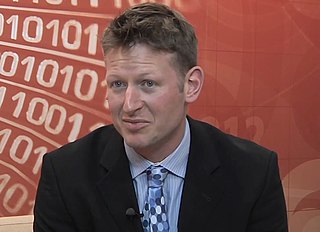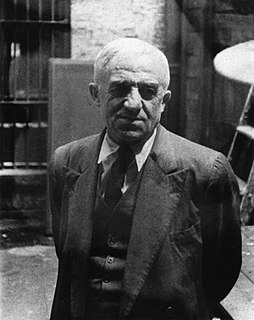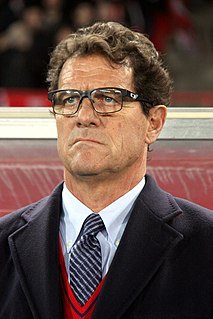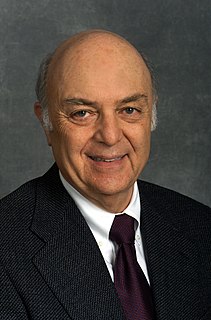A Quote by Mark Lynas
An outdated view still prevails that a low-carbon lifestyle requires immense personal suffering and sacrifice. In my view, nothing could be further from the truth. All the evidence shows that people who do not drive, do not fly on planes, do shop locally, do grow their own food, and do get to know other members of their community have a much higher quality of life than their compatriots who still persist in making the ultimate sacrifice of wasting their lives commuting to work in cars.
Quote Topics
Carbon
Community
Commuting
Could
Drive
Evidence
Fly
Food
Further
Get
Grow
Higher
Immense
Know
Life
Lifestyle
Lives
Locally
Low
Making
Members
Much
Nothing
Other
Outdated
Own
People
Persist
Personal
Planes
Prevails
Quality
Quality Of Life
Requires
Sacrifice
Shop
Shows
Still
Suffering
Than
Truth
Ultimate
Ultimate Sacrifice
View
Wasting
Work
Related Quotes
Real success is found in radical sacrifice. Ultimate satisfaction is found not in making much of ourselves but in making much of God. The purpose of our lives transcends the country and culture in which we live. Meaning is found in community, not individualism; joy is found in generosity, not materialism; and truth is found in Christ, not universalism. Ultimately, Jesus is a reward worth risking everything to know, experience, and enjoy.
From the point of view of the employer, it is in any case simply an item of cost, to be reduced to a minimum if it cannot be eliminated altogether, say, by automation. From the point of view of the workman, it is a "disutility"; to work is to make a sacrifice of one's leisure and comfort, and wages are a kind of compensation for the sacrifice.
Not only after two or three centuries, but in a million years, life will still be as it was; life does not change, it remains for ever, following its own laws which do not concern us, or which, at any rate, you will never find out. Migrant birds, cranes for example, fly and fly, and whatever thoughts, high or low, enter their heads, they will still fly and not know why or where. They fly and will continue to fly, whatever philosophers come to life among them; they may philosophize as much as they like, only they will fly.
It requires something more than personal experience to gain a philosophy or point of view from any specific event. It is the quality of our response to the event and our capacity to enter into the lives of others that help us to make their lives and experiences our own. In my own case my convictions have derived and developed from events in the lives of others as well as from my own experience. What I have seen meted out to others by authority and repression, economic and political, transcends anything I myself may have endured.
In the first centuries of Christianity the hungry were fed at a personal sacrifice, the naked were clothed at a personal sacrifice, the homeless were sheltered at a personal sacrifice... And the pagans used to say about the Christians, "See how they love each other." In our own day the poor are no longer fed, clothed, and sheltered at a personal sacrifice, but at the expense of the taxpayers. And because of this the pagans say about the Christians, "See how they pass the buck."
Some people get the impression that Buddhism talks too much about suffering. In order to become prosperous, a person must initially work very hard, so he or she has to sacrifice a lot of leisure time. Similarly, the Buddhist is willing to sacrifice immediate comfort so that he or she can achieve lasting happiness.
If you persist in trying to attain what is never attained (It is Tao's gift), if you persist in making effort to obtain what effort cannot get, if you persist in reasoning about what cannot be understood, you will be destroyed by the very thing you seek. To know when to stop, to know when you can get no further by your own action, this is the right beginning!
Crossing out is an art that is, perhaps, even more difficult than writing. It requires the sharpest eye to decide what is superfluous and must be removed. And it requires ruthlessness toward yourself -- the greatest ruthlessness and self-sacrifice. You must know how to sacrifice parts in the name of the whole.
People talk of the sacrifice I have made in spending so much of my life in Africa. Can that be called a sacrifice which is simply paid back as a small part of a great debt owing to our God, which we can never repay? All these are nothing when compared with the glory which shall be revealed in and for us. I never made a sacrifice.
Ah, the truth, what a thing it is! I sacrifice so much for it, with people: I forego, for truth's sake, discretion, loyalty, diplomacy, tact, polite manners, elegance, grace, poise, balance, good taste, conformity, image-role, fashionableness, polish, confidences, promises, ambition, consistency, identity, clarity, comprehensibleness, good will, hypocrisy, and lots of other things--amass sacrifice, at truth's altar. God! is truth worth it? I hope it is. It better be, in fact.



































